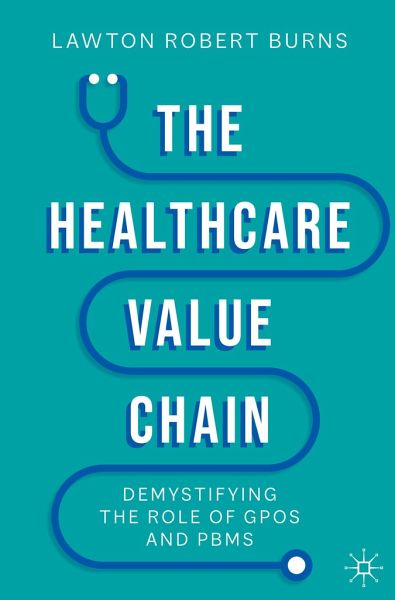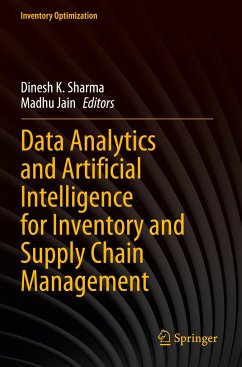
The Healthcare Value Chain
Demystifying the Role of GPOs and PBMs
Versandkostenfrei!
Versandfertig in 6-10 Tagen
39,99 €
inkl. MwSt.
Weitere Ausgaben:

PAYBACK Punkte
20 °P sammeln!
This volume analyzes group purchasing organizations (GPOs) and pharmacy benefit managers (PBMs) in order to better understand the significant roles that these entities play in the healthcare supply chain. It examines who they contract with, on what terms, and who they represent and answer to while charting their historical development. The analysis reveals that the current roles of both players have historical roots that explain why they behave the way they do. Finally, the book reviews the evidence base on the performance results of these two players.This work fills a void in our understandin...
This volume analyzes group purchasing organizations (GPOs) and pharmacy benefit managers (PBMs) in order to better understand the significant roles that these entities play in the healthcare supply chain. It examines who they contract with, on what terms, and who they represent and answer to while charting their historical development. The analysis reveals that the current roles of both players have historical roots that explain why they behave the way they do. Finally, the book reviews the evidence base on the performance results of these two players.
This work fills a void in our understanding about two important and controversial players in the healthcare value chain. Both organizations are cloaked in secrecy - partly by virtue of the private sector contracts they negotiate, partly by virtue of the lack of academic attention. Both play potentially important roles in controlling healthcare costs, albeit using contracting strategies and reimbursement mechanisms that arouse suspicion among stakeholders. This timely text explicates how these organizations arose and evolved to shed more light on how they really operate.
This work fills a void in our understanding about two important and controversial players in the healthcare value chain. Both organizations are cloaked in secrecy - partly by virtue of the private sector contracts they negotiate, partly by virtue of the lack of academic attention. Both play potentially important roles in controlling healthcare costs, albeit using contracting strategies and reimbursement mechanisms that arouse suspicion among stakeholders. This timely text explicates how these organizations arose and evolved to shed more light on how they really operate.












